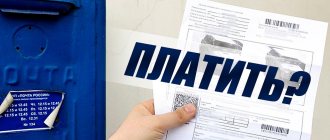What does it mean to seize a car?
For most inexperienced car owners, car seizure, ban or restriction of registration actions are identical concepts. However, from a legal point of view they are different.
The restriction prevents the implementation of ownership rights (or other rights) in relation to property. This measure can be used when dividing a car between spouses during a divorce, pledging a vehicle as collateral, etc.
A prohibition should be understood as a decision that prevents the owner of the property from performing a specific action or series of actions. For vehicles, a ban on registration actions is most often used. This measure can be used if there are debts on alimony, loans, fines and in other situations.
The concept of arrest is much broader than the previous ones. In accordance with Article 51 of the Federal Law “On Enforcement Proceedings” (FZ-229 of October 2, 2007), this measure provides for an inventory of property and a ban on performing absolutely any actions with it.
Also read: All about traffic police restrictions on cars
When can restrictions be removed from a seized vehicle?
There are several grounds for lifting the seizure of a vehicle. Whether restrictions can be removed from a car depends on the reasons for which the seizure was imposed.
- End of enforcement proceedings Art. 47 Federal Law 229 and documentary evidence of the debtor’s fulfillment of the obligations of the requirements of the writ of execution.
- Termination of enforcement proceedings.
- Refusal of collection under a writ of execution.
- A court decision on the unlawfulness of the seizure.
- Termination of enforcement proceedings at the request of the court or other body that imposed the arrest.
Who has the right to seize a car and in what cases?
This procedure can be initiated by a decision:
- court when satisfying the claim of any organization or government agency (bank, social security department, etc.);
- customs authorities;
- bailiffs.
There are many reasons why a car is seized. The most common of them are unpaid utilities, overdue loans, debts for alimony or traffic police fines. Also, punitive sanctions can be initiated for non-payment of taxes or for violations of customs clearance of a car (for example, the owner, in order to avoid paying a fee to the state treasury, imports it from abroad for spare parts, etc.).
Can bailiffs seize a car for loan debts?
If payments do not comply with the approved schedule, the bank has the right to apply penalties, and if such penalties are not paid by the debtor, then bailiffs can seize the car for debts on the loan. Also, the car can be taken away in some cases if there is arrears in rent or alimony. What can be done in this case and how to return the car, read further in the article.
While litigation is ongoing, the debtor can take steps to preserve the property. For example, repay part of the amount or agree with the bank to change the payment schedule. If an agreement fails, the court takes the bank’s side. Bailiffs confiscate the vehicle, and then the car is sold at auction. And often for a small price.
Seizure procedure
The seizure of a car by bailiffs is carried out in the manner provided for in Articles 64 and 68 of the Federal Law “On Enforcement Proceedings”. FSSP employees are required to present the owner with the relevant resolution and draw up an inventory of the property.
An act of seizure must be drawn up and documents for the car must be confiscated: PTS and registration certificate (in this case, the presence of two witnesses is required). The act of seizure specifies the following parameters:
- car color;
- license plate;
- body and engine numbers (when it comes to trucks, the chassis number is additionally indicated).
In addition, the document must mention external and internal defects of the car.
Then the issue of transferring the vehicle for storage is decided. An outside person or organization with which the FSSP has concluded a corresponding agreement may be appointed responsible for the safety of the car. However, quite often the seizure procedure is not carried out. In this case, the owner of the car or one of his family members is appointed responsible for storage.
It should be remembered that using a seized car, in accordance with Art. 86 of the Federal Law “On Enforcement Proceedings”, it is impossible without the written consent of the bailiff. Otherwise, the matter may lead to criminal liability.
By the way, you most likely will not receive permission from the bailiff, since cars belong to the category of property that can suffer significant damage during operation (for example, in a traffic accident). Accordingly, the cost of the seized transport will decrease.
The lien on the car will be removed after the debt is paid off. Otherwise, it may be put up for auction.
Consequences
The seizure of the car should be considered as a temporary measure forcing the debtor to repay the debt. However, if the court decision is evaded, more effective measures can be taken. The most radical of them is the seizure (confiscation) of the vehicle.
Do bailiffs have the right to seize a vehicle?
The court decision specifies the period for repayment of the debt . After its completion, the FSSP service has the right to seize the seized vehicle. With the participation of witnesses, a seizure report with an inventory is drawn up. The debtor is given 5 days to pay debts or appeal the action, and then the vehicle is transferred to the creditor bank or the Federal Property Management Agency for sale through an auction or in another manner prescribed by law. The difference between the debts and the cost of the car is returned to its owner.
In what cases can the seizure of a car by bailiffs be challenged?
According to current legislation, the arrest procedure cannot be carried out if the car belongs to:
- one of the debtor’s family members (for example, the husband’s car should not be seized for the wife’s debts or vice versa);
- a disabled person, and he needs it for movement;
- a debtor whose work is directly related to the use of a car he owns (taxi, freight transportation, etc.).
If the owner of the vehicle fits one of the above categories, but the arrest was still made, it’s time to go to court.
What are the risks of buying a seized car?
Some owners, after a car has already been seized, try to get rid of it. And there are buyers for such vehicles: they are attracted by the relatively low cost. If you make such a transaction knowingly, remember that you will not be able to legally complete the purchase. All seized vehicles are included in the traffic police database.
Often, the buyer simply does not know that the car sold to him is under arrest. Having contacted the traffic police, the newly-minted owner is denied registration of the vehicle. That is, you seem to have a car, but he cannot use it legally.
In this situation, there are several options:
- Try to get punitive sanctions lifted. True, this is only possible in a situation where the seizure occurred later than the conclusion of the purchase and sale agreement for the vehicle.
- Try to negotiate peacefully with the seller to terminate the transaction and return the money by sending him a corresponding claim in writing. The effectiveness of such actions is very doubtful, since the owner of the car perfectly understood the illegality of his act, which means that persuasion most likely will not work on him. Often the seller simply hides, turns off the phone and does not want to get in touch.
- If the second option does not work, you will have to file a claim to terminate the transaction and return the funds. The buyer has every right to do this in accordance with Article 460 of the Civil Code of the Russian Federation. Here you need to remember the following: if the transaction amount is less than 50 thousand rubles. - you should contact the magistrates, if more - the district court.
Practice shows that in the vast majority of cases your claim will be satisfied, but be prepared for the fact that the legal proceedings will take about 2 months.
An important point when drawing up a purchase and sale agreement (SPA) is to indicate the actual cost of the car. Often, by mutual agreement, a much smaller amount is fixed on paper. At the same time, the buyer should understand that if, for example, he actually paid 500 thousand rubles for the purchase, and the contract indicates half that amount, it will be very difficult to return the money in full. After all, the court does not need words, but documented evidence.
Can they take away an apartment or a car for debts?
It is all the more important to clearly understand that before the draft comes into force, such actions on the part of the judiciary are illegal. Seized housing must be returned to the owners. The question still remains open: to accept or reject this law, since even in the State Duma there is no consensus. If the decision is positive, debtors will be required to repay overdue loans through the sale of their only living space.
We recommend reading: Benefits for Pensioners in the Perm Territory for Travel on Public Transport
Delays in paying for utilities, especially if the amount of debt is significant, become the basis for the housing and communal services to prepare a writ of execution in order to begin proceedings in court to collect money. In this case, real estate is taken into account, acting as a reliable guarantor of repayment of all payments. This is an excellent way to encourage citizens who have made mistakes to correct the situation for the better.
A word from the experts
Yulia Kombarova, General Director of Legal Bureau No. 1:
“In all standard contracts for the purchase and sale of property, including cars, there is a clause that states: “The seller guarantees that the car is not pledged, that third parties have no claims to it, and the seller also guarantees that it has no signs of and bankruptcy cases filed.” This clause of the contract protects the buyer, and places full responsibility for the circumstances of the transaction on the seller. Therefore, in the event of detection of arrests imposed on the item of purchase, after concluding a sales contract and transferring money, the buyer has the right to invalidate the contract, receive the money back and return the car.
Proving the good faith of the acquirer is, of course, a time-consuming legal process. But for the services of a representative and other legal expenses can be recovered from an unscrupulous seller in court. It should be noted that if you win a lawsuit, you will not be able to get money right away. Most likely, you will have to contact the bailiff service, and if the debtor is in bankruptcy proceedings, then submit your claims to the register of creditors of the debtor in the bankruptcy case.”
Valerik Vardanovich Galstyan, senior partner of the law firm:
“In such a situation, things can develop in two ways:
- If the contract for the sale and purchase of a vehicle was executed before the seizure, then the new owner has the opportunity to try to lift the seizure in court by proving that he was a bona fide purchaser, and at the time of the seizure the vehicle was not owned by the seller.
- If the purchase and sale agreement was executed after the seizure, the car will be confiscated from the new owner, since the seizure is a restriction on taking actions to alienate property. Therefore, the seller did not have the right to sell the property under arrest.
In the second case, the new owner has every right to terminate the purchase and sale agreement concluded with the seller and demand the return of the funds paid by him.”





